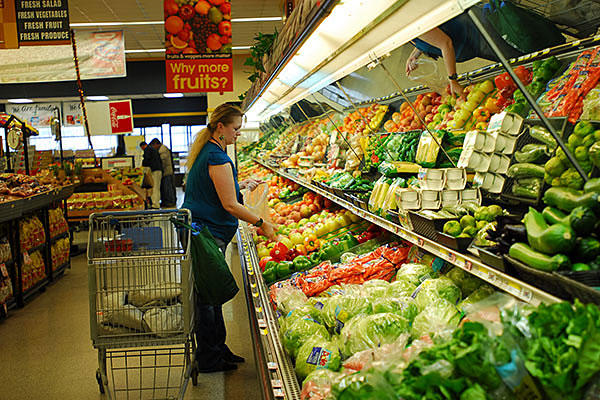A group of lawmakers is urging colleagues to block the Defense Department from changing how fresh produce is supplied at commissaries in Asia.
Pentagon officials are finalizing a new contract to supply produce at commissaries in Asia and Guam. In the past, the contractor bought the items from U.S. suppliers and the Defense Department paid to ship them overseas. Going forward, the new plan would require the contractor to pay for the shipping costs – or purchase the items from local sources.
That change could save taxpayers $48 million a year. But industry officials and lawmakers say it could mean higher prices for shoppers, since the cost of shipping goods from the states or the higher cost of locally sourced items would be factored into price tags on items at the store.
The U.S. House of Representatives in its version of the 2016 National Defense Authorization Act, known as the NDAA, agreed to block Defense Commissary Agency officials from making the change until they have conducted a study examining the issue. The bill is currently in conference as lawmakers negotiate a compromise between the House and Senate versions.
“We write to you today to urge your continued support for one provision in the NDAA that would be a clear win for our troops, our retired veterans and their families,” the letter states. It was signed by Reps. Duncan Hunter, R-California; Walter Jones, R-South Carolina; Tom MacArthur, R-New Jersey; Marc Veasey, D-Texas; and Steve Knight, R-California.
Agency officials first sought to make the change to the $34.5 million annual contract in early 2014, but faced opposition from both lawmakers and the current contractor, Raymond Express International. The award is under protest and the Government Accountability Office, which arbitrates federal contract disputes, is expected to make a decision on the matter soon. If the office approves the provision, the new contract would go into effect next month unless Congress passes the measure to block it.
Produce prices in the 29 commissaries in Asia and Guam would, on average, be about 66 percent higher under the new plan and shoppers see a smaller variety of items, according to a 2014 study commissioned by Raymond Express International. But some shoppers in Asia say they already buy their produce locally and don’t purchase items that are hard to find or very expensive, such as celery.
--Amy Bushatz can be reached at Amy.Bushatz@military.com.






























